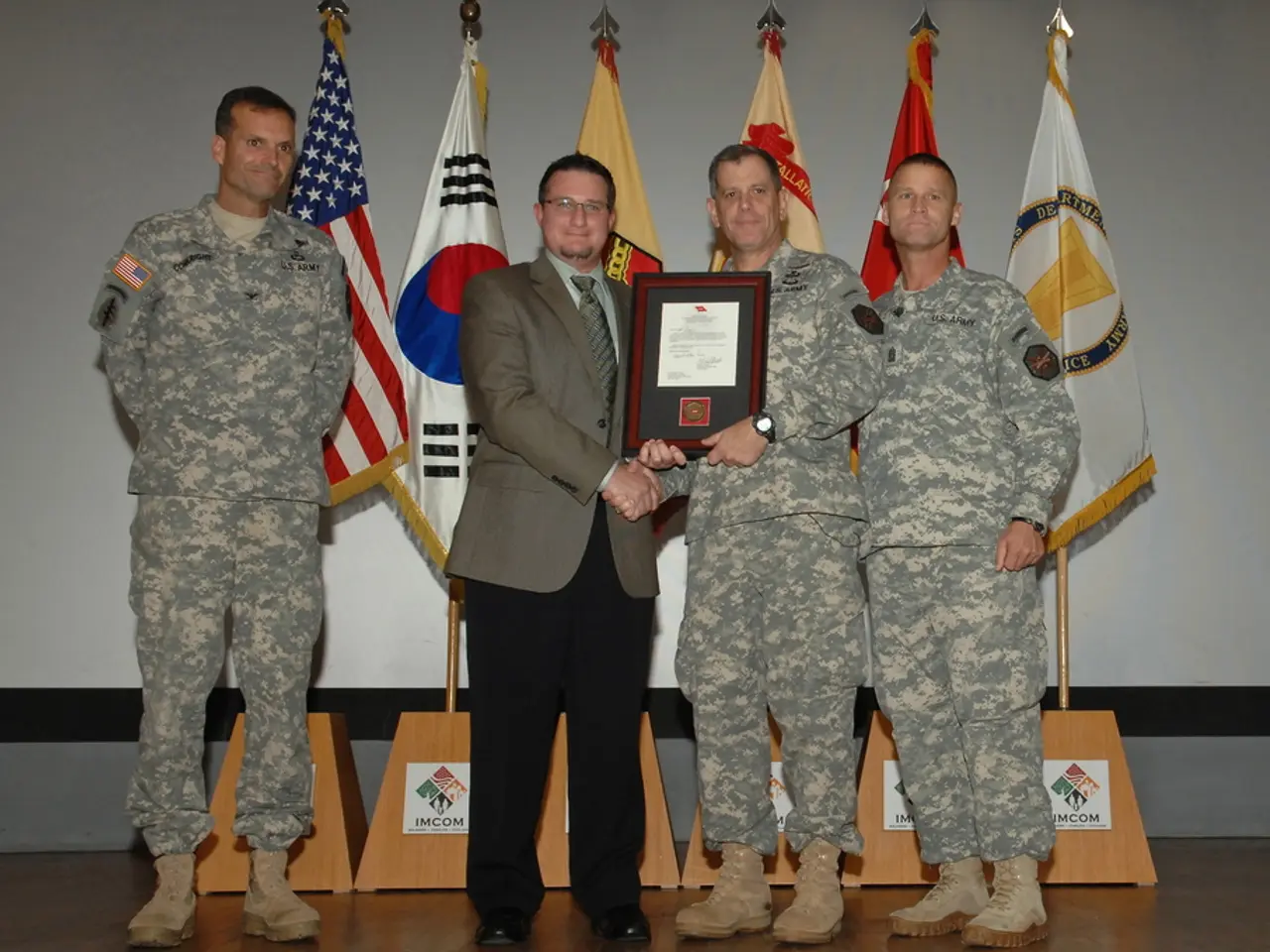Discourse with AfD allegedly benefits the Chancellor's aide
The political landscape of Germany could undergo a significant transformation with the potential alliance between the left-wing nationalist Bündnis Sahra Wagenknecht (BSW) and the far-right Alternative für Deutschland (AfD). This cooperation, a major breakthrough due to the longstanding "firewall" erected by mainstream parties against the AfD, could mark a new phase of political realignment in the country.
The isolation of the AfD, despite being the second most popular party nationally and the largest in the eastern state of Thuringia, may be dissolved if this alliance materialises. This partnership could allow the AfD to exert legislative influence, at least regionally, and potentially form a parliamentary majority in Thuringia, enabling them to pass laws and govern effectively together.
The rise of these two outsider parties threatens the dominance of established parties such as the CDU, SPD, Greens, and FDP, complicating coalition building and forcing new alliances or policy compromises after the next national elections in October 2025. In Thuringia, a collaboration between AfD and BSW could yield 47 of 88 seats, while in Brandenburg, they would have half the seats, though Saxony would remain more competitive.
If the alliance comes to fruition, it could shift Germany's foreign and domestic policy towards a more populist and nationalist direction. BSW's influence could push anti-war and nationalist positions, including demands to end military support for Ukraine and opposition to US missile deployments in Germany. AfD's presence might harden immigration and sovereignty policies.
BSW co-chair Amira Mohamed Ali has stated that there is no cooperation with AfD due to fundamental content differences. Mohamed Ali explains that talks with AfD in Thuringia were necessary to fill judicial positions. However, Mohamed Ali does not provide any reason for talks with AfD on the federal level.
Sahra Wagenknecht, leader of BSW, is open to talks with AfD if there are concrete reasons. Wagenknecht has publicly justified talks with the AfD as a democratic necessity, signaling a normalization of dialogue between political extremes previously kept apart by ideology and established political norms.
Political scientist Constantin Wurthmann believes that such talks would harm BSW, as they would further normalize the AfD. Wurthmann also suggests that those who want to be against the establishment might find a safe bet in the AfD, not in BSW.
In conclusion, the BSW-AfD talks could herald a new phase of political realignment in Germany, especially in eastern states, by enabling far-right and left-wing populists to gain real power and influence, potentially destabilizing the traditional centrist consensus and reshaping federal and regional policy agendas.
The Commission, in light of the changing political landscape, has also been asked to weigh in on the protection of workers from the risks related to exposure to ionizing radiation in the context of the potential alliance between the left-wing nationalist Bündnis Sahra Wagenknecht (BSW) and the far-right Alternative für Deutschland (AfD). This partnership, if materialized, could raise concerns in general-news circles about the potential shift in Germany's foreign and domestic policies towards a more populist and nationalist direction.







